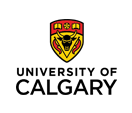Four University of Calgary scientists and engineers who are working to improve environmental monitoring, communications technologies and food security have earned almost $2 million in new support from the Natural Sciences and Engineering Research Council of Canada’s Strategic Partnership Grant program. The awards are granted to research programs that are transferring knowledge and expertise to policy-makers and to Canadian-based companies.
“Projects with external partners allow our scholars to translate the discoveries and technologies that emerge from research to address challenges and create opportunities for Canadians,” says Ed McCauley, vice-president (research) at the University of Calgary. “We’re grateful to NSERC for their commitment to research programs that have a positive impact on our communities and that train the next generation of leaders.”
The newly supported programs include Yang Gao’s geomatics engineering research in the Schulich School of Engineering. Gao’s research into precision positioning and navigation systems will be conducted with industry partners Orthoshop Geomatics, Cansel, and Geosat to strengthen the Internet of Things — where smart sensors allow more precise positioning and navigation in challenging environments. These advances apply to Unmanned Aerial Vehicles to manoeuvre in confined environments, connect self-driving cars in intelligent transportation systems, and refine geo-referencing smartphones for mobile mapping. Gao’s research has contributed to the development of several new positioning and navigation systems including commercial products sold world-wide.
Paul Barclay, of the Institute for Quantum Science and Technology in the Faculty of Science, has also been awarded. Barclay’s work with nanophotonic circuits allows light to be manipulated “on-chip” where it can be used to for quantum information processing technology. In the nearer term, these devices are beginning to find applications in detecting forces — created by magnetic and electric fields, for example — with a unique combination of sensitivity, compact footprint, and potential for integration with other photonic and electronic technologies.
Mohamed Helaoui in the Schulich School of Engineering has been awarded for his research in information and communication technologies. Conducted in partnership with the National Research Council, Ericsson Canada and Nanowave Technologies, Helaoui’s research develops new power amplifiers to advance wireless communication links for space and terrestrial applications. The targeted inventions will contribute to communication networks that are faster, more intelligent, and more energy-efficient — providing Canadians with better access and communication services at lower costs — while having less impact on the environment.
Marcus Samuel, in the Faculty of Science, has been awarded for his agricultural research aimed at identifying molecular mechanisms behind drought tolerance in Canadian Canola crops. Samuel’s goal is to generate superior canola varieties that are tolerant to increasingly extreme weather conditions that have led to 20- to 30-per-cent declines in revenues in recent years. Canola is the major cash crop in Canada and contributes $19.3 billion to the Canadian economy.
Full list of awards:
- Yang Gao, Schulich School of Engineering (Geomatics Engineering), and co-applicant Naser El-Sheimy: Novel Precision Augmentation and Integration of Low-cost GNSS and MEMS Inertial Sensors for IoT Mobile Devices
- Paul Barclay, Faculty of Science: Quantum Nano-Optomechanical Devices
- Marcus Samuel, Faculty of Science: Developing Extreme Climate-Resilient Canola Varieties
- Mohamed Helaoui, Schulich School of Engineering: High Efficiency and Broadband Fully Integrated MMIC Power Amplifiers Using GaN Technology for Space and Terrestrial Wireless Communication








